Are Yerevan residents concerned about the threat of another war?
While politicians and social media users are anticipating an outbreak of another war in Armenia, residents of Yerevan are strolling around the city center and spending their afternoons in numerous cafes.

The Presidents of Russia and France are now trying to solve the ongoing escalation between Armenia and Azerbaijani, Iran is planning to deploy troops on the border with both countries, and the US Secretary of State has already discussed the situation in the region with the Russian Foreign Minister.
A number of opposition parties, leaders of various organizations, and initiatives are holding rallies and protests every day in order to help Armenia find a way out of a crisis.
They all seem to be quite crowded and various sources estimate that approximately 1,000 – 3,000 people participate in the protests in Yerevan.
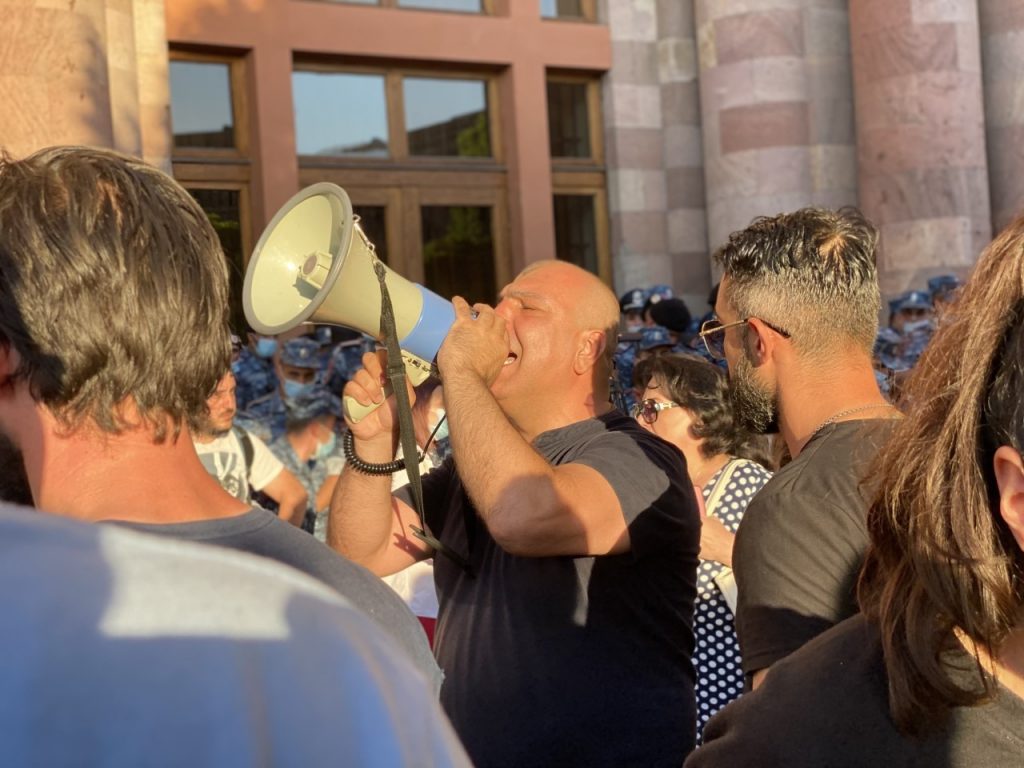
Tensions increased when on May 20, Acting Prime Minister of the Republic of Armenia Nikol Pashinyan confirmed that he was going to sign a document clarifying the state border between Armenia and Azerbaijan.
Neither opposition politicians, activists, nor the majority of social media users trust his statement.
In previous years, dissatisfaction with the social and political situation in the country brought tens of thousands of people to the streets. This was the case when the authorities intended to raise the price of travel in minibusses, or there were problems with electricity or environmental pollution.
Now too, Yerevanians go out on the streets every evening, but the majority still prefer walking around the city center or sitting in a cafe.
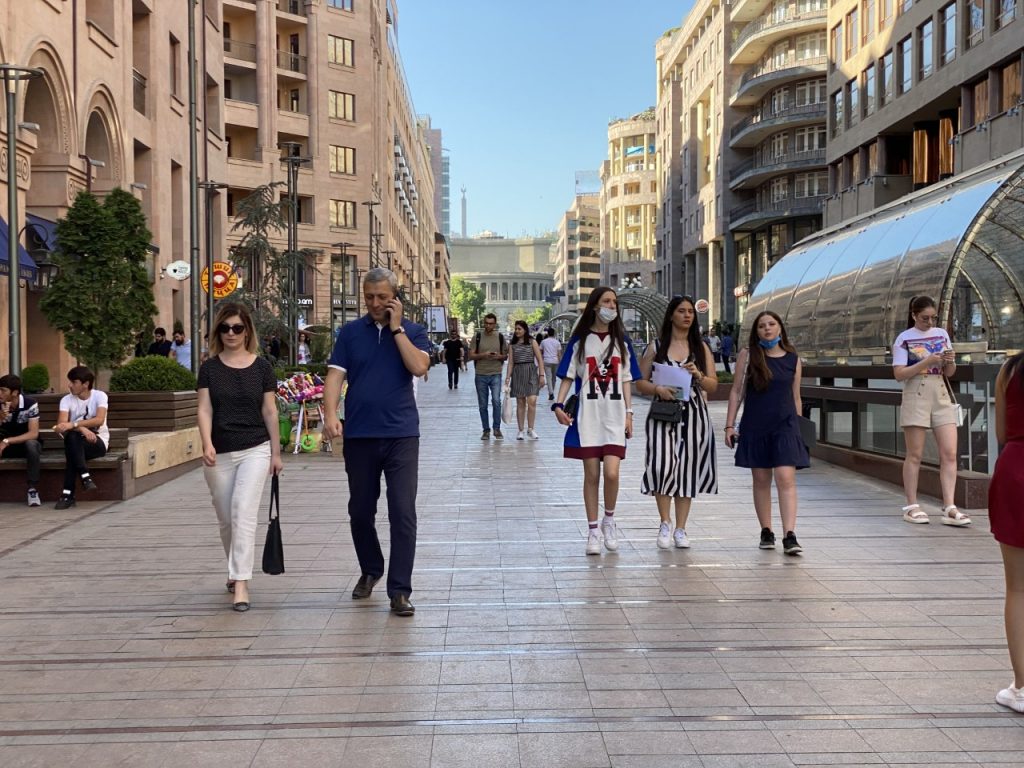
In order to better understand what is happening on the streets of Yerevan, I myself took a little walk in the city center.
While the protesters in the main square of the Republic of Yerevan shouted “Armenia without Nikola” and demanded the immediate resignation of the Prime Minister, a couple of meters away from them, a cafe on the Northern Avenue was full of visitors, although there are more than twenty other cafes in the area.
On the avenue, there are many passers-by who are in no hurry and who are clearly out to enjoy their promenade.
Chinese toys are sold in every corner – dogs who bark, soldiers who shoot and crawl, ducks that can swim.
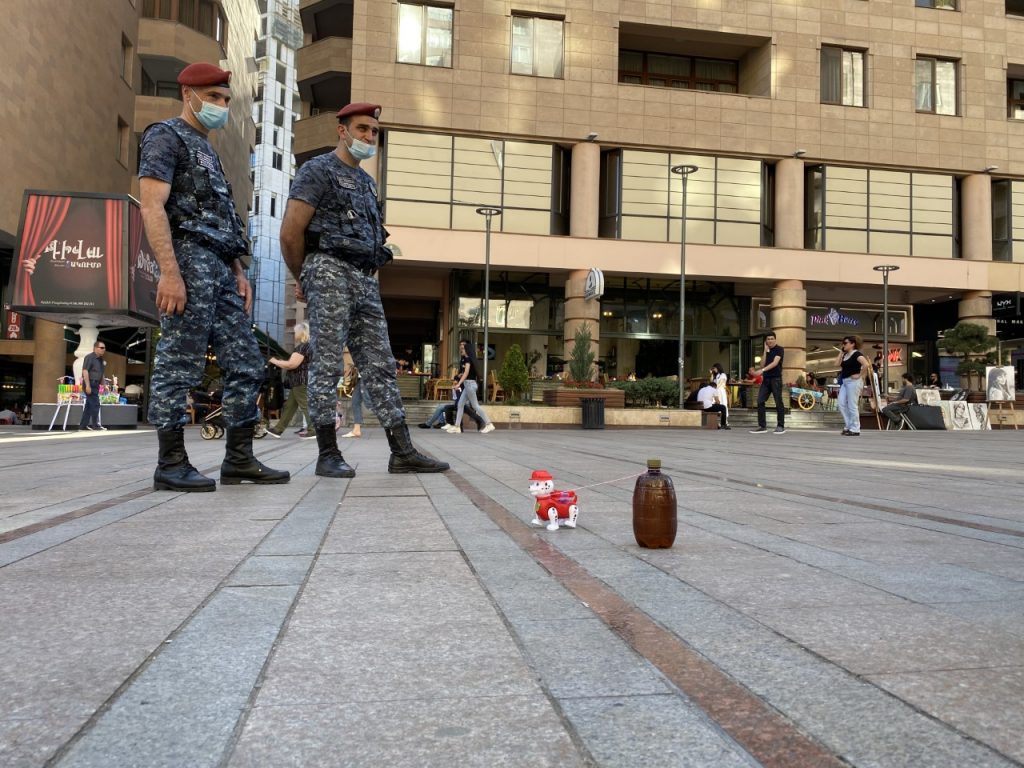
“Well, I’ll go to the square, so what? Look, the people have already voted once and look how it all ended”, a middle-aged woman selling toys says angrily.
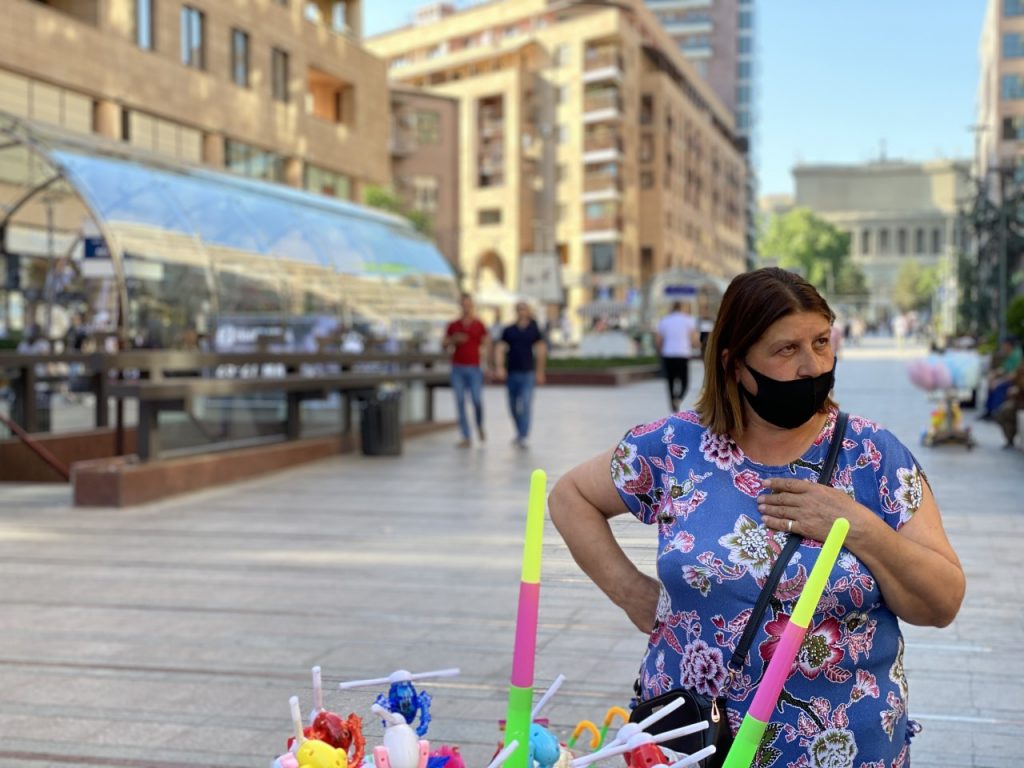
A man standing at a nearby intersection calls on everyone to take part in the rally: “We are losing the country!”, he shouts, holding the Armenian flag in his hands.
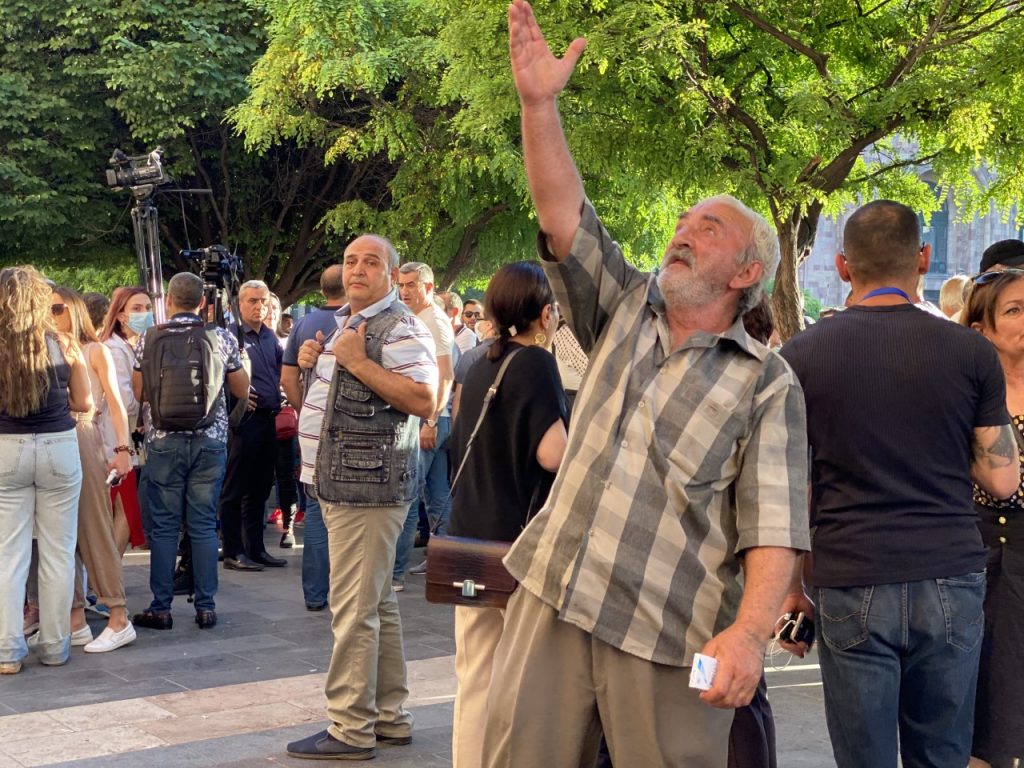
People pass by indifferently.
Meanwhile, the protesters arrange a procession and start walking towards the building of the National Assembly. There are so few of them that traffic along Baghramyan Avenue is not even interrupted. There are more and more people appearing on the Cascade and Northern Avenue, but they obviously do not participate in the rally. Women dressed up, happy and smiley, men are talking loudly to each other. The topics of their conversations, however, are political: they discuss the situation in Armenia.
In one of the cafes, where all the tables are occupied, visitors are talking about politics. Young people were sitting at the table which I approached: “I can’t imagine how, after all this, I will be able to travel outside Yerevan, even. What will we do if all the main roads come under the control of Azerbaijan?”
They say that they do not participate in the rally, because they do not believe that they can change anything.
“The President of our country and other officials do not know which document Nikol is signing. If even they cannot do anything, what can we possibly change? “
In order to grab a coffee or a cold, refreshing drink in one of the cafes on the Cascade, you now have to wait in line as there are no free tables in the center of Yerevan in the evenings.
“For me, this is a sign of indifference. People do not trust politicians and politics in general, and the mistrust towards them is so great that for many it has become more important than the presence of Azerbaijani soldiers in Armenia. People are tired of politics”, says journalist and analyst Mark Grigoryan.
Those who sit in a cafe in downtown Yerevan and those who post alarming and angry messages or comments on Facebook are most likely the same people, they simply choose to express their concerns on social media or in heated arguments in cafes, instead of taking them to the streets.
Trajectories is a media project that tells stories of people whose lives have been impacted by conflicts in the South Caucasus. We work with authors and editors from across the South Caucasus and do not support any one side in any conflict. The publications on this page are solely the responsibility of the authors. In the majority of cases, toponyms are those used in the author’s society. The project is implemented by GoGroup Media and International Alert and is funded by the European Union




















